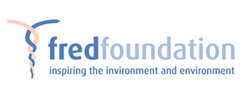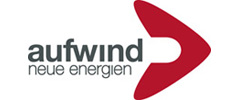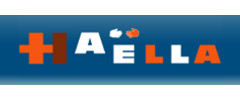Why WASH in Schools and Menstrual Hygiene Management needs to be in the SDG sanitation indicators
Calling on all member states and stakeholders engaged in indicator process for Sustainable Development Goals of 2030 Agenda to add Menstrual Hygiene Management
04.09.2015 |

We are calling on all member states and stakeholders engaged in the indicator process for the Sustainable Development Goals of the 2030 Agenda. We have started to “break the silence on Menstrual Hygiene”: civil society organisations, UN agencies, Ministers responsible for Water and Sanitation, have in the last years started to work towards ensuring menstrual hygiene management (MHM) in learning and working environments. This happened as it was recognized that lack of MHM is a main barrier to gender equality, girl’s school attendance, women’s participation in public life, and often a reason of health problems for women and girls.
Download the pdf version of the Call here
The Sustainable Development Goal 6 target 6.2. on sanitation for all, calls for addressing needs of women and girls and vulnerable communities. Of course the indicator for this target 6.2. should therefore include a specific mention of MENSTRUAL HYGIENE MANAGEMENT (MHM) in all working and learning environments. Similarly, the Goal on Education should ensure that girls have access to menstrual hygiene management in schools. Unfortunately, this has not been proposed as yet in any of the indicators so far been retained in the overview by the UN statistics committee. Till September 7th, the UN requests your proposals for indicators.
We call on you to propose indicators on MHM for targets 4.2 and 6.2:
- % of people* using safely managed sanitation services** including MHM in working and learning environments/institutions (target 6.2.)
- % of schools with pupils using safely managed sanitation services** with separate toilets for females and males including MHM (target 4.2.)
These indicators were discussed at a meeting with experts from AMCOW, WECF, UNESCO, UNSGAB, UNEP, UNHABITAT, BORDA, WEP, GWA, SWA, SuSanA during Stockholm World Water Week 2015. Download the outcome of the meeting here.
*disaggregated by sex (age and wealth quintile)
** Definition of ‘safely managed sanitation services’ needs to be extended as follows: “safe, separate sanitation facilities, with water and soap, including accommodations for menstrual hygiene management in public, private, rural and urban spaces, including schools”
For more information, please contact: Claudia.wendland@wecf.eu Women International for a Common Future / WECF International
Related News
The 62nd Commission on the Status of Women
Worldwide representatives and officials gathered at the United Nations headquarters in New York City to discuss the matters of women and sustainability
28.03.2018
Petition: calling for international solidarity to support environmental defenders Victoria Tauli-Corpuz & Joan Carling
Feminists Condemn Philippines President Duterte’s Accusation of Activists and Indigenous People Leaders as Terrorists
14.03.2018
Using community-based data monitoring to track gender equality realities on the ground
New York: Official Side Event to CSW62
12.03.2018
Implementing Agenda 2030 in Georgia: Where Are We Now?
WECF organised with Georgian government and the UN a workshop on the Sustainable Development Goals in Tbilisi, 19-21 February 2018
22.02.2018 | Tbilisi, Georgia






































